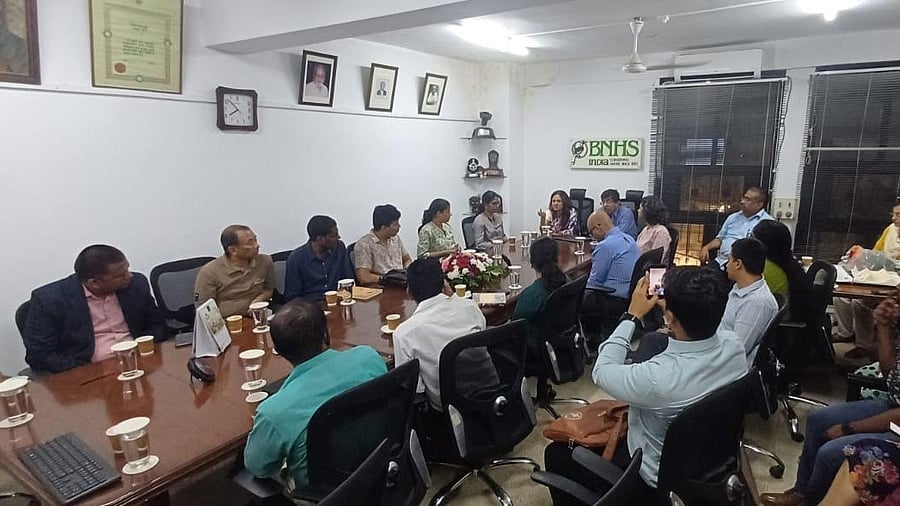
Documentary ‘Mercy Feeding: Pigeon Menace in Urban Areas’, which explores the lethal effects of indiscriminate pigeon feeding on human health,
Credit: BNHS & JSW Foundation
Mumbai: Indiscriminate feeding of pigeons in the urban landscape of India has emerged as a big problem with compounding issues including lethal effects on human health and urban biodiversity.
Uncontrolled pigeon feeding, often referred to as ‘mercy feeding,’ has led to a significant increase in pigeon population in urban areas.
In Mumbai and the larger Mumbai metropolitan region (MMR), the uncontrolled growth of common blue rock pigeons has become a menace.
The Mumbai-headquartered Bombay Natural History Society (BNHS) has joined hands with JSW Foundation, the social development arm of JSW Group, to create awareness on the issue.
As part of the initiative, a documentary ‘Mercy Feeding: Pigeon Menace in Urban Areas’, which explores the lethal effects of indiscriminate pigeon feeding on human health, explained through expert insights, was released on Tuesday evening.
While feeding is seen as an act of kindness, it has unintended consequences, including disruption of local biodiversity and public health risks.
Pigeons are known carriers of airborne diseases, and their droppings contribute to the deterioration of buildings and public spaces. This growing issue calls for better awareness and responsible urban wildlife management.
“Feeding pigeons in our cities may seem kind, but it creates serious health risks for all of us. Overcrowding leads to disease, damages buildings, and disrupts the balance of nature. True care means protecting both people and wildlife,” said Sangita Jindal, the Chairperson of JSW Foundation.
“Urban pigeon feeding, though seemingly kind, fuels overpopulation, creating unsanitary conditions. Their droppings spread diseases like salmonellosis and cryptococcosis, posing risks, especially to vulnerable individuals. Artificially inflated populations disrupt local ecosystems and strain city resources,” said Praveen Singh Pardeshi, the President of BNHS.
“The new documentary exposes these dangers, illustrating how well-intentioned actions can have dire consequences for both human health and urban biodiversity. It urges a shift towards responsible urban wildlife management, advocating for natural population controls and public awareness campaigns to safeguard our cities,” added Pardeshi, who is also the Chief Executive Officer of the Maharashtra Institution for Transformation (MITRA).
“We hope that this film will bring awareness among the responsible people who run the Kabutarkhana and also the communities who feed the pigeons. Hope people will stop feeding pigeons once they see this film,” said Kishor Rithe, the Director of BNHS.
The documentary explains the ecological and health impacts of pigeon overpopulation, the role of excessive feeding in disrupting urban biodiversity, calls for stopping the mercy feeding practices and promoting wild-urban-avifauna.
By presenting factual information and expert opinions, the film aims to educate the public on the consequences of mercy feeding and encourage informed decision-making. It promotes alternative, responsible approaches to managing urban wildlife, urging citizens, policymakers, and urban planners to work toward stopping mercy-feeding practices in the city.
This documentary urges communities to rethink their interaction with the pigeons and strike a balance between urban wildlife, compassion and ecological responsibility.